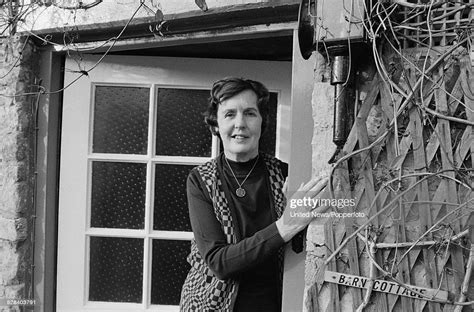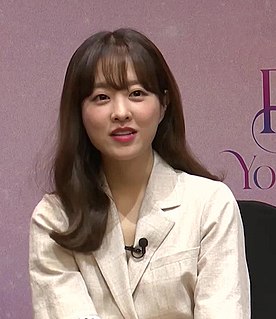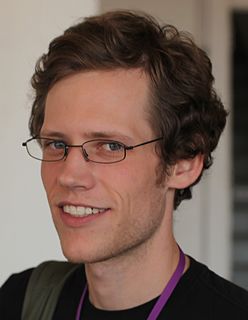A Quote by Ian Mckellen
I've played an awful lot of people that other people would call villains, but that isn't a very helpful attitude to have if you're about to play them. They are just people, and they may do dreadful things and say dreadful things, but your job as an actor is to know why they do them or say them.
Related Quotes
I get a lot of e-mail messages from people who say thanks for giving them a place to vent, an outlet to say what they can't say in real life with friends and work colleagues - things that they know are wrong, but they still want to say. Is it right? No, of course not. People say some disgusting, vile things.
I'm more likely to not invite someone back for not talking. If someone talks a lot, I can usually shut them up and control them. But with people who don't talk, if they don't really want to talk, they probably shouldn't be on this show, and that's fine. They're talented people with things to say, but sometimes people say what they have to say through other means than arguing.
In real life people fart, in the movies, people don't. Why not? Farts are a repressed minority. The mouth gets to say all kinds of things, but the other place is supposed to keep quiet. But maybe our lower colons have something interesting to say. Maybe we should listen to them. Farts are human, more human than a lot of people I know. I think we should bring them out of the water closet and into the parlor.
Everyone has a masculine and feminine side; masculine qualities and feminine qualities. We've all got these sides to ourselves. And clothes can tell that story. People would think this is very unsympathetic, but I would always say to people, you don't actually need to go through with an operation, can't you just be? You are who you are! But then people say to me, "Oh, you're really dreadful, how would you know?".
Most people think things are not real unless they are spoken, that it's the uttering of something, not the thinking of it, that legitimizes it. I suppose this is why people always want other people to say "I love you." I think just the opposite—that thoughts are realest when thought, that expressing them distorts or dilutes them.
I don`t know if this is good politics or bad politics to criticize Trump, but you`ve got to call out, just like people in communities when people say racist things and feel it`s OK now to be a sexist or a racist or a misogynist or a bigot, individuals have to call them out, I have to call them out when I see it. You have to call out this president when he engages, when he hires somebody that makes people even more uncomfortable. I mean, it`s not a difference in policy. People in this country, the fear levels are higher than I can ever remember.
I may not know the weight of those things, but I could feel the weight of that one, so I kept it to myself. You know that things aren't going well for you when you can't even tell people the simplest fact about your life, just because they'll presume you're asking them to feel sorry for you. I suppose it's why you feel so far away from everyone, in the end; anything you can think of to tell them just ends up making them feel terrible.
When I pick a story, I'm very much aware of the larger issues that it's illuminating. But one of the things that I, as a writer, feel strongly about is that nobody is representative. That's just narrative nonsense. People may be part of a larger story or structure or institution, but they're still people. Making them representative loses sight of that. Which is why a lot of writing about low-income people makes them into saints, perfect in their suffering.
Throughout my career, I had a lot of mentors, and I just adopted them. What I found is that, especially if you're young, when you go up to people and say, 'Would you mind being my mentor?,' their eyes widen. They literally step back. What they're thinking about is the commitment and time involved if they say yes. And time is something they don't have. So I would not ask them to be my mentor, but I would just start treating them like it. And that worked very well for me.
Villains can often be one note and I would say in that case, it’s not fun to play the villain. It’s fun to play the villain if he a) has dimension and b) the villain gets to do all the things in the movie that in life he would get punished for. In the movie, you’re applauded for them if you do them with panache. And so that’s why it’s more fun to play the villain.



































